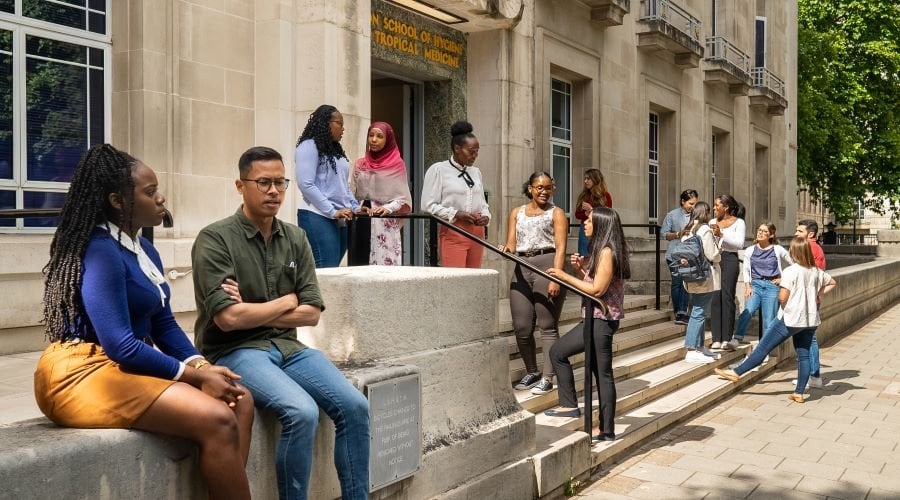Application tips from current students Ella & Shereen
28 February 2023 London School of Hygiene & Tropical Medicine London School of Hygiene & Tropical Medicine https://lshtm.ac.uk/themes/custom/lshtm/images/lshtm-logo-black.png
Do your research into the course and university
When writing your personal statement, it is important to think about why you specifically want to come to LSHTM and study the particular course you have chosen.
Find out which modules are required for your course and which optional ones you may like to study. Read through the course programme webpages and delve into the module specifications. You can say why some modules interest you and what you might like to do in the future with the knowledge/skills you learn. You can also discuss any relevant work or academic experience you may have in the topic.
Ella’s experience: I chose Public Health at LSHTM because I discovered during my undergraduate degree that I was really passionate about improving health through a specific module I had chosen to study. LSHTM was actually recommended to me by this module’s lecturer, who completed their PhD at the school. I was drawn to the school due to the array of Health Promotion modules available at LSHTM.
Shereen’s experience: Before I applied, I had heard really good things about LSHTM from alumni who had studied here through my own personal networks. This inspired me to look into the different courses available! I chose Public Health because of the breadth of skills you learn and topics you can cover, and I was particularly interested in learning more about and developing my skills in health promotion and reducing inequalities.
Think of all relevant experiences through which you can display yourself
When writing your personal statement, discuss any relevant academic, extra-curricular or work experiences you have had and how these can help you succeed on the course. It is very common for prospective students to not have any experience in public health itself too! Some ideas for relevant experiences include:
- Research projects or dissertations from your undergraduate degree
- Volunteering, work or academic experience in health care, social care, research, development or policy
- Laboratory skills (if doing a lab-based course)
- Webinars and courses attended, or own reading into your chosen field of study
- And many others!
Ella’s experience: I had worked for charities that focused on improving health outcomes for marginalized groups and I also worked for the NHS Covid Response Programme. This helped me when I applied for this course because I could discuss my passions for improving health and the practical skills I had learnt whilst doing this.
Shereen’s experience: I had little direct experience of public health before I applied to the course! When I was doing my undergrad degree, I volunteered with a student society where we did outreach workshops in local schools to promote oral health. I used this to talk about my understanding of health promotion and why I feel it is important. I also volunteered with a local charity which delivered food to elderly and vulnerable people. Through this experience, I learnt about the difficulties vulnerable people can face when trying to access healthcare.
Make use of Student Ambassador profiles
Have a look at the Student and Alumni Ambassador profiles for the courses you are interested in. You can contact them via an enquiry form and they will always respond to your questions via email. They may have similar interests to you and can help you with any questions you have related to course content, applications or CV tips!
Get in contact with university careers support
If you are still in university or have access to your old university careers support, utilise them to help you write your application letter and update your CV. They can be really helpful in knowing what is useful to include and help you tailor your experiences.
- Contact Ella and Shereen
- Discover the MSc Public Health
- Watch our Virtual Open Day sessions on demand